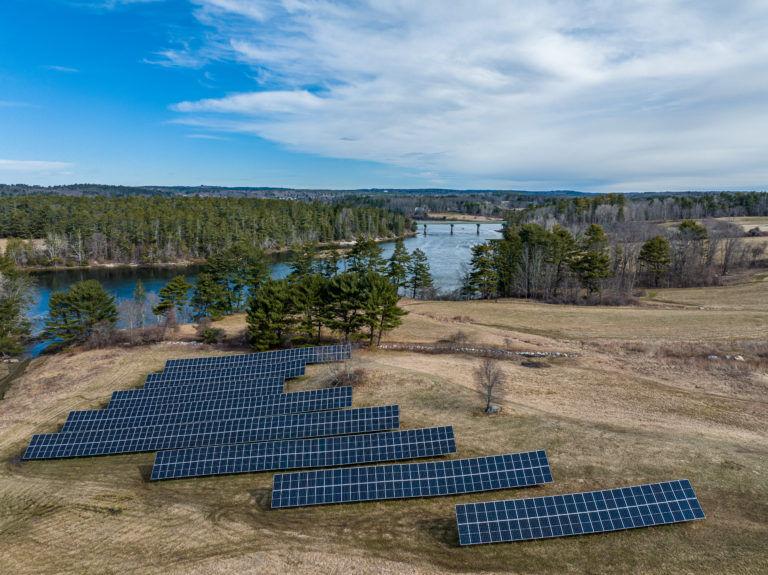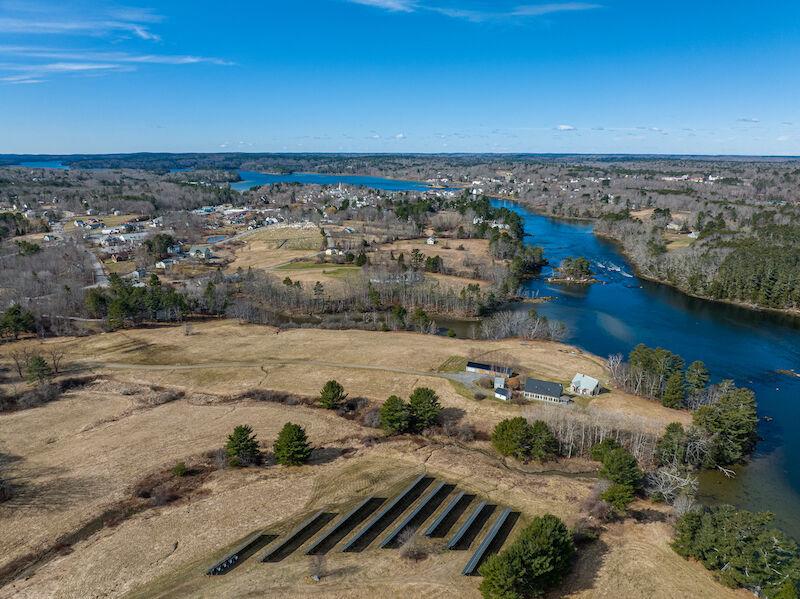Coastal Rivers Conservation Trust / Kieve Wavus, Damariscotta, ME
 By the numbers:
By the numbers:
System size: 231 kW (608 solar panels)
System output: 312,000 kWh/year
CO₂ reduction: 306,072 pounds/year
The partnership between Coastal Rivers Conservation Trust and Kieve Wavus Education is an inspiring solution to the obstacles that many small nonprofits face in their journey to become solar powered. They are modeling for their communities, members, and other nonprofits that we can’t fight the climate crisis alone and that finding like-minded partners is a powerful force for good. The nonprofits share a solar installation that will provide solar power to both organizations.
The arrangement allows both parties to benefit from a large-scale array that will result in immediate lower electric costs for both. Alone, Coastal Rivers’ and Kieve Wavus’ power needs were not great enough for them to enter into a Power Purchase Agreement (PPA) in which the rates would be lower than their current electrical rates. By partnering, however, both organizations can achieve the scale necessary to immediately pay less per kilowatt-hour, positioning them to invest more resources into other environmentally conscious efforts core to their missions.
 Located at Coastal Rivers Round Top Farm in Damariscotta, the 231-kilowatt system will generate roughly 312,000 kilowatt-hours (kWh) of electricity each year, offsetting the equivalent of over 548,222 miles driven in a gas-powered car. Kieve Wavus Education will use an estimated 74 percent of the power generated, roughly 232,000 kWh, with Coastal Rivers using the remaining 26 percent, roughly 80,000 kWh.
Located at Coastal Rivers Round Top Farm in Damariscotta, the 231-kilowatt system will generate roughly 312,000 kilowatt-hours (kWh) of electricity each year, offsetting the equivalent of over 548,222 miles driven in a gas-powered car. Kieve Wavus Education will use an estimated 74 percent of the power generated, roughly 232,000 kWh, with Coastal Rivers using the remaining 26 percent, roughly 80,000 kWh.
“We are a land trust, with a commitment to the health of the properties in our care, including islands, coastal properties, and fragile natural communities. All these lands are subject to impacts from a changing climate,” says Coastal Rivers Executive Director Steven Hufnagel. “That’s why we’re doing as much as we can to reduce the carbon footprint of our operations. This solar project is the key to a sustainable energy supply even as we seek to reduce our energy use and switch from fossil fuels to electricity.”
“Being responsible stewards of our environment is central to our mission. We work with nearly 10,000 young people annually. In our experiential education model, it’s critical to lead by example,” says Executive Director Emeritus Henry Kennedy. “And it doesn’t stop here. We’re close to our goal of securing 100 percent of our electricity from the sun.”
